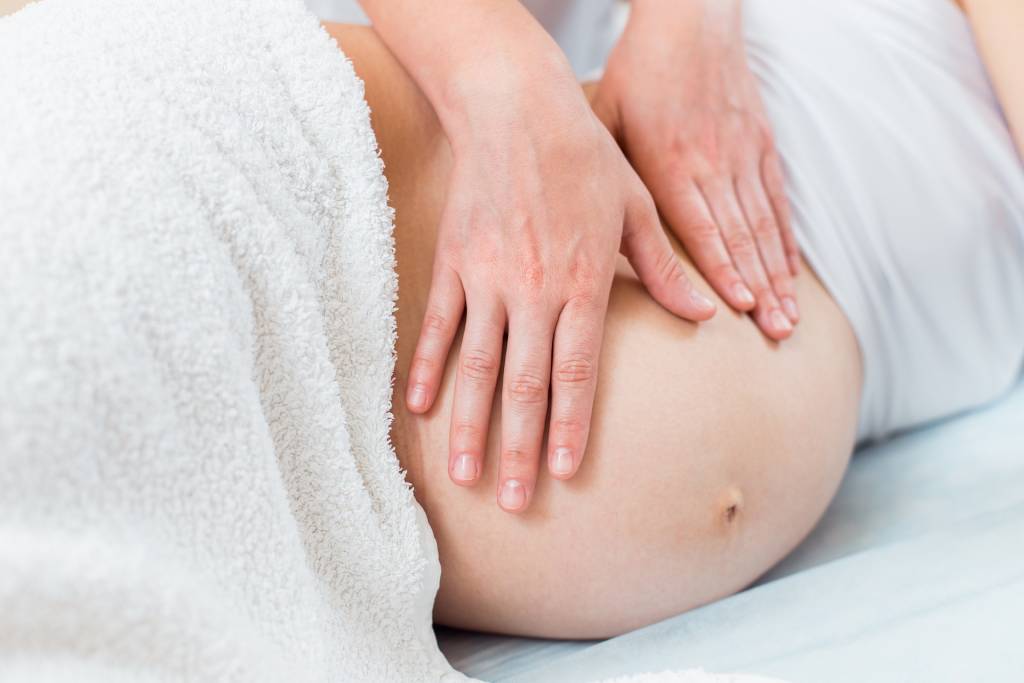Prenatal massage, also known as pregnancy massage, is a therapeutic massage specifically designed to address the unique needs of pregnant women. It is a type of massage that is adapted to accommodate the changes in a woman’s body during pregnancy. Prenatal massage aims to provide relaxation, relieve discomfort, and promote overall well-being for expectant mothers. During a prenatal massage, the woman typically lies on her side, supported by pillows and cushions, to ensure comfort and safety.
The massage therapist uses various techniques to target specific areas of concern, such as lower back pain, swelling in the feet and ankles, and muscle tension. The pressure applied during the massage is usually lighter and more gentle compared to a regular massage, considering the sensitivity and changes in the pregnant woman’s body. Benefits of prenatal massage may include reduced muscle tension and headaches, decreased joint pain, improved circulation, increased relaxation and reduced stress, improved sleep quality, and reduced anxiety and depression.
It can also help alleviate common pregnancy discomforts like sciatic nerve pain, leg cramps, and edema. Pregnant women must consult with their healthcare provider before receiving prenatal massage to ensure it is safe for their specific circumstances. It is also recommended to seek a licensed massage therapist who has training and experience in prenatal massage.
BENEFITS OF PRENATAL MASSAGE
1. Stress reduction: Prenatal massage can help to alleviate stress and promote relaxation. This can be especially beneficial for expectant mothers who may be experiencing anxiety or hormonal changes.
2. Pain relief: Many pregnant women experience common discomforts such as back pain, hip pain, and leg cramps. Prenatal massage can help to relieve these aches and pains, providing much-needed relief.
3. Improved circulation: Pregnancy can sometimes lead to swelling and fluid retention, particularly in the legs and feet. Prenatal massage can help to improve circulation, reduce swelling, and promote healthy blood flow.
4. Reduced muscle tension: As the body changes during pregnancy, muscles can become tense and tight. Prenatal massage can help to relax and loosen these muscles, reducing discomfort and promoting better flexibility.


5. Hormonal regulation: Prenatal massage has been shown to help regulate hormones, such as reducing cortisol (the stress hormone) and increasing serotonin and dopamine (the feel-good hormones). This can have a positive impact on mood and overall well-being.
6. Improved sleep: Many pregnant women struggle with sleep disturbances due to discomfort, hormonal changes, and anxiety. Prenatal massage can help to promote better sleep by reducing muscle tension, promoting relaxation, and alleviating discomfort.
7. Bonding with the baby: Prenatal massage can be a special time for expectant mothers to connect with their growing baby. It provides an opportunity for relaxation and mindfulness, allowing the mother to focus on the connection between herself and her baby.
8. Preparation for labor: Prenatal massage can help to prepare the body for labor by promoting relaxation and reducing muscle tension.
It can also help to increase body awareness and provide techniques for pain management during labor. It is important to note that pregnant women should always consult with their healthcare provider before receiving a prenatal massage to ensure it is safe for them and their specific pregnancy.




